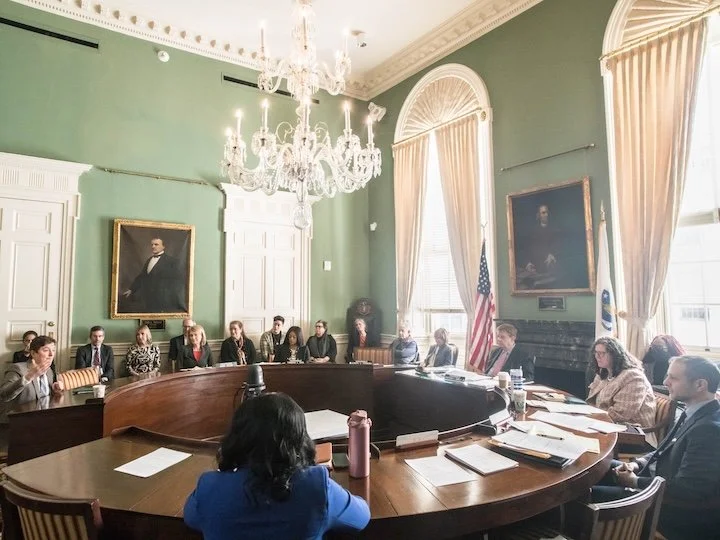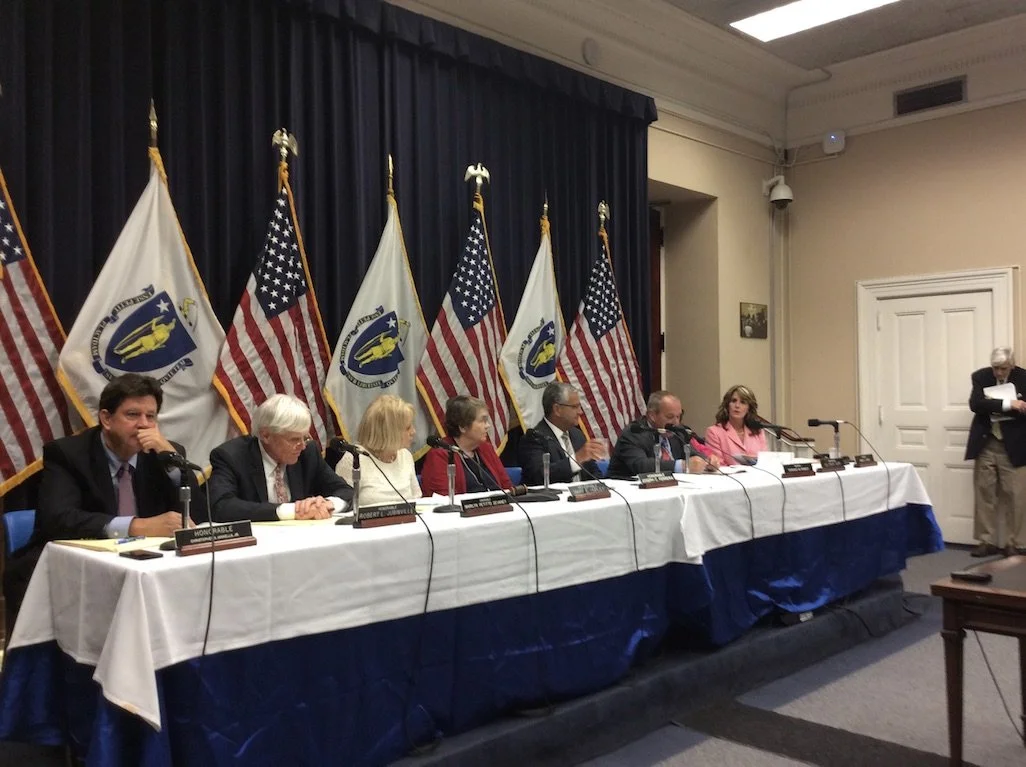
Who Governs the Governor’s Council?

Introducing The Governor’s Council.
The Massachusetts Governor's Council is one of the Commonwealth’s most enduring and least understood government bodies. Created in the colonial era and still active today, the Council is made up of eight elected members, each representing five state senate districts, and is chaired by the Lieutenant Governor. It is responsible for approving critical executive decisions, most notably the nomination of judges to lifetime appointments in the state court system and members of the state parole board: two domains directly linked to the system of mass incarceration that defines and haunts us.
But, we ask: Who Governs the Governor’s Council?
Know its role.
Understand its impact.
The Massachusetts Governor’s Council predates the formation of the union and is one of the more obscure elected bodies in the Commonwealth.
Its obscurity is compounded by the fact that the office is referred to as “Councillor” rather than as “Governor’s Councillor” on the ballot.
Despite its obscurity and confusing nomenclature, its power and influence are deeply embedded in our legal system such that every time a new judge is appointed, or someone applies for a pardon or commutation, the Governor’s Council plays a decisive role. From setting long-term legal precedents to determining whether someone deserves a second chance, its influence is critical.
Not only are these important decisions that directly affect courtrooms, communities, and the legal system, they are also central components in the ongoing inequalities of our justice system. And yet, most residents have never heard of the Council, let alone know who represents them. Learning how it works and who’s on it are two of the first steps toward answering the question who governs the Governors Council: We all do!
-
The Governors Council approves or rejects the Governor’s nominations for judges in the state court system at all levels, from district court to the Supreme Judicial Court.
-
The Governor’s Council provides “advice and consent” for the Governor’s appointments to the Parole Board and it must approve all gubernatorial pardons and commutations. No one gets a pardon in Massachusetts without its vote.
-
Additionally, the Council must approve any commutation or pardon issued by the governor. When considering clemency, the Parole Board is known as the Advisory Board of Pardons.
-
The Council confirms appointments to some powerful state boards, like the Appellate Tax Board or Industrial Accident Board. It also formally approves the weekly warrants allowing the state Treasurer to release funds. It’s mostly ceremonial, but technically a check on the executive branch’s spending, dating back to its original purpose.
How to get involved.
Each Councilor* is elected by voters in their district. That means your voice matters. Whether it’s learning more about your representative, showing up to a hearing, or staying current on what’s being decided—you don’t need to be an expert to get involved.
*Mass government uses the archaic form of the title “Councillor.” We chose to adopt modern usage of “Councilor.”
Stay connected. Stay engaged.
Council hearings are open to the public, and we’re here to help you keep track. Browse upcoming events, read summaries of past meetings, and follow how Councilors vote.
So, who governs the governor’s council?
We all do, and that is why we formed this organization. We are a volunteer-led civic group working to make the Governor’s Council easier to follow, and harder to ignore. This site is here to simplify the process, explain what’s happening, and encourage participation. Democracy works better when more people are paying attention.
Contact
Please contact us with any questions or to join our mailing list.
Email
wggc.mass@gmail.com


